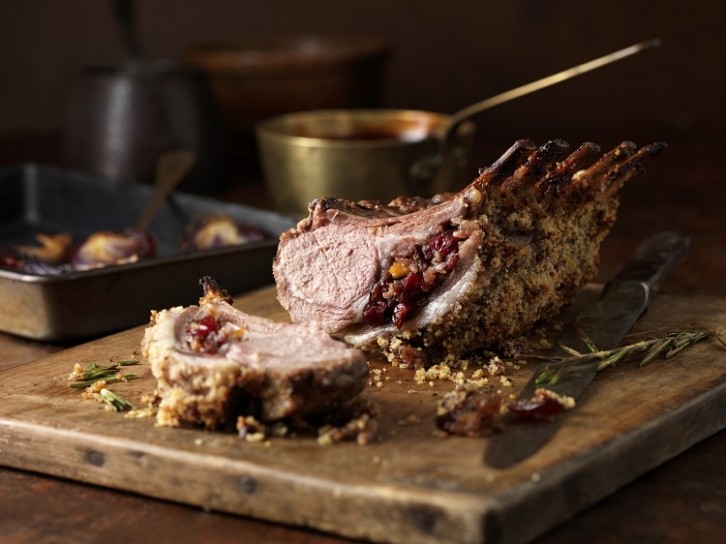Rustic food trend leaves fine dining in the dark

Food and beverage trends are constantly growing and evolving. But recent consumer behaviour points to a more significant shift in the way consumers are eating and drinking. Why? Because they all represent a move away from fine dining and towards simplicity and comfort.
First came the nostalgia food trend, highlighting a longing for simpler times, before the uncertainty of the global pandemic, climate crisis and current geopolitical unrest. This was joined by the comfort food trend, offering warmth and comfort through these challenging times. Now, the rustic food trend has merged, bringing with it a return to more unfussy, unprocessed foods.
“Rustic products are gaining prominence, from handcrafted cheeses and small-batch spirits to authentic sourdough,” said a spokesperson for food manufacturer, Tip Top Foodservice.
So, what’s fuelling the rise in popularity of the rustic food trend and what does it mean for the food industry?
Why is the rustic food trend proving popular with consumers?
As with the comfort food and nostalgia food trends, it appears the rustic food trend, including soups, casseroles and pasta bakes, is gaining popularity as consumers seek stability in uncertain times, which started with the global pandemic.
“The pandemic had a huge impact on eating habits,” Charles Redfern, founder of organic food manufacturer Organico RealFoods, told FoodNavigator. “It was a time when there was very little to do, leading many households to revisit their recipe books and cook from scratch. And those meals were obviously more relaxed and rustic."
And this type of home cooking has withstood the return to offices and socialising, as rustic foods are quick and easy to make, when time is at a premium.
“Recipe books that champion one-pot and one-tray meals, that are easy to make, hearty, and have a rustic vibe are very much in vogue,” says Redfern.
Furthermore, it feeds into the growing health and wellness trend, as many consumers associate pre-made meals with ultra processing, which has received negative press in recent months.
“Rustic styles and chunky textures are often used to convey ‘minimally processed’ foods,” a spokesperson for market insight firm, Mintel, told FoodNavigator. “Products that are able to show more intact ingredients, such as seeds, whole grains or other whole foods, will evoke healthy perceptions.”

Another reason for the move away from fine dining and towards more rustic meals is affordability, which remains a major factor for consumers as the cost-of-living crisis continues.
“A one-pot feast is good economics,” says Organico RealFoods' Redfern. It also allows consumers to cook larger quantities, creating leftovers for lunch or dinner for the following day.
“It always makes sense to cook a little extra for a second meal,” adds Redfern.
And this leads into a perhaps lesser-known trend, chaos cooking. Chaos cooking is the combination of foods from across the globe. And the reason it’s regarded as part of the rustic food trend? Anything goes. This means there are essentially no rules and people can throw together the ingredients they have available in their cupboards, without conforming to a particular cuisine. Its popularity is also being fuelled by influencers on social media as they try to outdo each other with the most outlandish dishes made from the most unusual combinations. To date, #ChaosCooking has garnered over two million posts on TikTok.

Will the rustic food trend last?
Food trends change and evolve all the time, and while some have staying power (gut health is going nowhere!), others slowly fade into obscurity (cake pops and cronuts).
So, the big question is, will the new rustic food trend be one to stay the course or disappear as so many others have? Well, it appears the answer is that rustic is here to stay. Why? Because it’s tied in with multiple other popular food trends, which are proving popular with consumers. What’s more, these combined trends point towards a shift in overall consumer behaviour, which is fuelling these trends.
“Rustic foods seem to be in the ascendancy, fuelled by a growing appreciation for real ingredients and small batch providers,” says Redfern.
And many brands are already engaging with this trend, with Marks and Spencer launching products including its Rustic Italian Passata, and Carrefour launching its Country Style Rustic Sautéed Vegetables.
But brands can go further than this by assisting the consumer in creating more rustic meals.
“Highlighting on-pack, and in marketing, where only a few additions are needed to create a meal, will help,” Isabelle Shilling, research analyst for Mintel, told FoodNavigator. “Locating meal components together in store, including as part of recipe bundles, remains another pertinent way to highlight how a product allows home cooks to create a dish with few ingredients.”
Directly addressing consumer concerns over ultra-processed foods is also essential.
“There’s an opportunity for less processed variants and preservative-free frozen foods to win favour,” says Shilling.
She also underlines the importance of food manufacturers moving towards 'clean label' foods and to highlight when a product is clean label. This will help to appeal to those consumers who are choosing more rustic foods for health reasons.
What does ‘clean label’ mean?
Though there is no official definition, ‘clean label’ is the concept of making a product using as few ingredients as possible, and ensuring those ingredients are ones that consumers recognise. These will ideally be ingredients that consumers would themselves use when cooking at home.




















